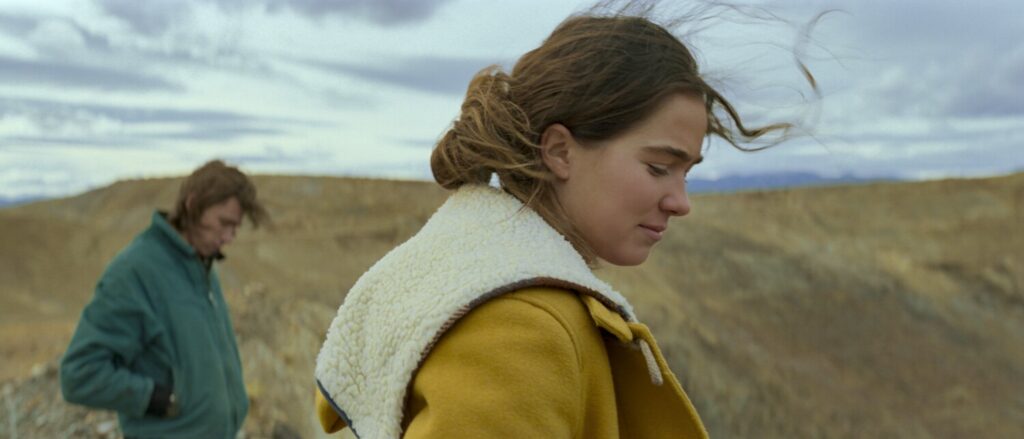Under an ominous sky, two estranged siblings struggle to reconcile in “Montana Story,” the latest drama from writing and directing duo Scott McGehee and David Siegel (“What Maisie Knew”). The slow-revealing and vividly sorrowful two-hander boasts superb acting against the backdrop of the alluringly barren American heartland.
Youngest child Cal (Owen Teague) returns to his home state to put his father’s affairs in order. As the older man lays unconscious on life support, Cal walks with a heavy heart and a clouded mind. Those conflicted sentiments only intensify when his sister Erin (Haley Lu Richardson) reluctantly returns with a combative demeanor, the product of an unresolved betrayal.
Together after several years of no communication, they cagily confront each other while the man responsible for their separation is no longer able to answer for his cruelty. In turn, their childhood horse becomes a living symbol of better days, and Erin is bent on not only saving the animal but taking it with her. Therein lies the plot, though the themes run deeper.
From cinematographer Giles Nuttgens’ longingly naturalist shots, the filmmakers paint a narrative where the land and its inhabitants exist inextricably from one another.
The ochre tones that cover the autumnal planes of a desolate town whose mining industry is long in the rearview mirror, as well as the incessant wind that grazes people’s faces, create a strong sense of place frame after frame. Elegantly edited in segments that fade to black as the ice thaws between the siblings, there’s an air of timelessness.
One of today’s finest young actresses delivering one of her best performances, Richardson (recently seen in Kogonada’s “After Yang”) is an imposing figure, fighting to contain her pent-up hatred and disappointment. Her every word is a piercing indictment. As a guilt-ridden young man, a fantastic Teague holds his own with apologetic eyes that plead for atonement for his inaction when she most needed him.
Their recurrent tête-à-têtes convey multitudes. While the events that transpire are minimal, the poignancy of “Montana Story” resides in watching these two strangers, once inseparable, reconnect now as different people but with the same scars.
McGehee and Siegel try to include their supporting characters of color — Ace (Gilbert Owuor), the Kenyan live-in caregiver, and the Native American mother and son close to the white family — as part of the film’s dramatic geography. But for the most part, these peripheral individuals act mostly as vehicles for the co-leads to air their woes.
The heavy-handed expositional dialogue is a fair exchange for not having a flashback to the incident that separated the siblings or to their childhood in a dysfunctional household. Avoiding the use of such a device in a tale so rooted in the protagonists’ past is an excellent dramatic decision on the directors’ part.
Each breakthrough in the reconstruction of their fractured relationship feels emotionally hard-fought in the present. Wrapped in a single gesture of forgiveness, in the aftermath of painful truth-telling, is the possibility to see beyond their individual hurt and walk hand in hand toward shared healing.
‘Montana Story’
Rated: R for language
Running time: 1 hour, 53 minutes
Playing: Starts May 13, AMC Sunset 5, West Hollywood; the Landmark, West Los Angeles

